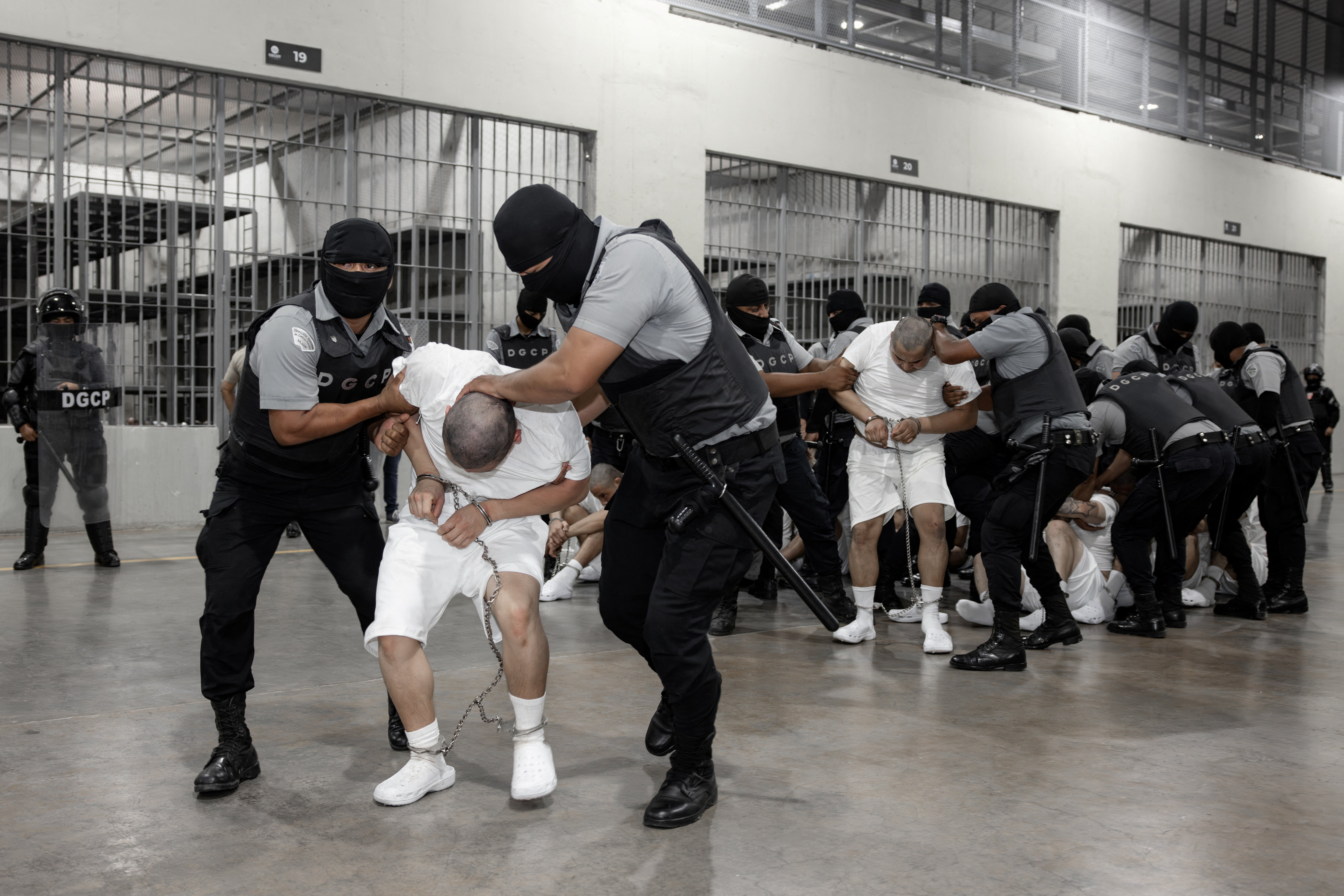Federal appeals judges criticized the White House on Monday as it challenged a lower court’s order requiring the administration to attempt to return a Venezuelan asylum seeker it deported to a Salvadoran prison in March under the emergency Alien Enemies Act.
“As is becoming far too common, we are confronted again with the efforts of the Executive Branch to set aside the rule of law in pursuit of its goals,” Judge Roger Gregory of the Fourth Circuit, a George W. Bush appointee, wrote in a concurring opinion on the side of the majority. “It is the duty of courts to stand as a bulwark against the political tides that seek to override constitutional protections and fundamental principles of law, even in the name of noble ends like public safety.”
The case concerns a 20-year-old Venezuelan referred to in court documents as “Cristian,” who alleges he was sent to a notorious Salvadoran prison in March despite being part of a settlement protecting asylum seekers who arrived as minors from deportation until their claims could be fully processed.
The Department of Homeland Security criticized the ruling in a statement to The Independent, saying the administration made “no error” by deporting Cristian, a “self-admitted Tren de Aragua gang member” who “crossed our border illegally under the previous administration” and was later arrested for a cocaine offense in 2024.
"The President and [Homeland Security] Secretary Noem will not allow a foreign terrorist organization to operate on American soil,” DHS Assistant Secretary Tricia McLaughlin wrote in the statement. “If the court forces his return, he will be removed again.”
The Independent has contacted U.S. Citizenship and Immigration Services, the other agency named in the suit, for comment.

Cristian was deported on the same group of flights containing Kilmar Abrego Garcia, a Salvadoran man at the center of a scandal in which the U.S. government admitted it mistakenly deported him, but has effectively refused to facilitate his return.
The Supreme Court unanimously upheld lower decisions that the government must facilitate Garcia’s return, which has not yet occurred.
In April, a federal court made a similar order that the Trump administration must facilitate Cristian’s return, including by making a “good faith request to the government of El Salvador to release Cristian to U.S. custody.”
The Trump administration argues that because it invoked the Alien Enemies Act and deemed Cristian a member of the Tren de Aragua gang, he is no longer protected from removal by the settlement.
On appeal, the administration sought to pause the lower court’s order requiring the government to facilitate Cristian’s return.
In a 2-to-1 ruling, the Fourth Circuit left the lower court’s order in place, and rejected arguments that the decision represented an undue intrusion by the courts into the diplomatic affairs of the president.
“The Government cannot facilitate Cristian’s return telepathically – it must express in words to the government of El Salvador that Cristian be released for transport back to the United States,” Judge DeAndrea Gist Benjamin, a Biden appointee, wrote in an opinion.
Gregory added in his opinion that the administration had given “no evidence” to support invoking the Alien Enemies Act in the first place, making its effort to nullify Cristian’s settlement protections equally suspect.
“The government’s argument in this case is that this plainly invalid invocation of the Act can be used to void any and all contractual obligations of the federal government,” the judge added. “That cannot be – and is not – the rule of law.”
In a dissent, Judge Julius Richardson, a Trump appointee, argued the lower court shouldn’t be able to tell U.S. officials to seek the man’s return.
“Many options may be available to district courts seeking to craft appropriate relief in response to deportations they find unlawful. But directing diplomatic negotiations to the Executive Branch is not among them,” he wrote. “There is no such thing as a trifling discussion between heads of state; matters perceived as unimportant in the moment may unexpectedly bloom into trade pacts and environmental protocols — or deteriorate into war.”
In Abrego Garcia’s case, a federal judge last week hammered Trump administration officials, arguing they were acting in “bad faith” by slow-walking Abrego Garcia’s return, declining to provide detailed information on what they were doing to comply with court orders.
“What we got was a bunch of ‘I don’t knows,’” said U.S. District Judge Paula Xinis, an Obama appointee.
The administration has argued that certain details about the effort shouldn’t be released because they are state secrets.
The spring deportation flights have been a continued source of controversy for the administration.
It has been accused of disregarding a court order to turn the flights around in the first place, and advocates argue that many of the hundreds who were deported did nothing wrong and were accused of gang membership on flimsy grounds, sometimes on the basis of their tattoos alone.
A Cato Institute analysis of the roughly 250 men deported to El Salvador on the flights found that over 50 came to the U.S. legally and never violated any immigration laws, while a CBS News investigation found 75 percent of them appeared to lack a criminal record of any kind.
Marco Rubio clashes with Dem senator in heated testimony: ‘I regret voting for you’
Trump plan to unify wildfire work targets inefficiencies but former officials warn of chaos
Charles and Camilla hope Canadian trip will be ‘impactful’
EU to provide emergency funds to help keep Radio Free Europe afloat
FBI closes unit that watched for misuse of national security surveillance
Dan Bongino and Kash Patel face MAGA fury for dismissing Jeffrey Epstein conspiracies







